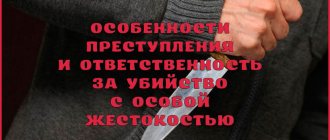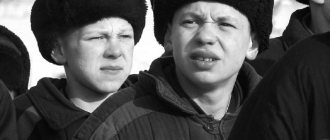When a person dies, the lives of his loved ones are irreversibly changed. Murder is the most serious crime of all, because it cannot be corrected. If a criminal kills his victim in a way that endangers the lives of other people, then this is considered an aggravating circumstance and is classified as murder committed in a generally dangerous manner. To impute this article, there must be at least one bystander present who is not a potential victim, but whose life is endangered along with the life of the victim, and the accused understands this.
Classification
As with any intentional crime, the accused must be aware of the danger of his actions. To qualify murder under this article, you need to consider the weapon of the crime. Fits the criteria:
- explosion or arson in crowded places;
- use of vehicles in the form of a ram;
- poisoning with toxic substances by spraying them into air or water;
- shooting in which other people could have been injured and in other ways.
That is, an explosion where no one is there, or a murder with a knife in a public place cannot be classified as murder in a generally dangerous manner.
Aggravating circumstances
The concept of “aggravating circumstances” is used exclusively in criminal proceedings. Murder is considered to be a specific action, which is always committed with purpose and motive, and inaction. The exception is homicide by negligence. The Criminal Code of the Russian Federation (CC RF) specifies the concepts of various types of murder.
Each offense is individual. When assigning punishment for aggravated murder, the picture of the crime is taken into account, which allows a fair punishment to be applied.
Article 63 of the Criminal Code of Russia indicates circumstances that aggravate the punishment of the defendant:
- Recidivism of offenses, repetition of their commission.
- A serious consequence as a result of the lawlessness committed.
- The commission of an offense by a group of citizens who have entered into a conspiracy in advance or by an organized gang.
- Involvement in the commission of offenses of citizens with severe mental disorders or who are intoxicated, as well as minors who are not subject to criminal liability due to their infancy.
- Committing an atrocity for political, ideological, racial, national, or religious reasons, because of hatred or enmity.
- Carrying out a crime out of revenge for the lawful activities of an authorized person.
- Purposefulness in concealing one offense in order to facilitate another committed crime.
- Committing a criminal act against a person and his relatives because of his official activities or the performance of a public duty.
- Carrying out an offense against a pregnant woman, a minor or defenseless citizen, as well as a person who is dependent on the defendant.
- An offense committed with particular cruelty, sadism, mockery, or torture towards the victim.
- Committing an offense with the help of weapons, ammunition, explosives, explosive or simulating devices, specially manufactured technical means, toxic and radioactive substances, medicinal, chemical, pharmacological drugs, using physical force or mental influence.
- Carrying out an atrocity in a state of emergency, natural or social disaster, during mass riots.
- Committing an offense by taking advantage of the trust placed in the defendant because of his position or under a contract.
- Carrying out an offense using the form of documents authorized by the authorities.
- Committing criminal acts by an employee of internal organs.
- An offense committed in relation to a young child by parents or other persons who are charged by law with the responsibility for his upbringing. This applies to teaching staff or other educational staff, medical professionals, social service organizations or other institutions supervising minors.
- Carrying out an offense for the purpose of promoting, justifying and supporting terrorism.
Also, taking into account the degree and nature of the social danger of the offense, the circumstances of its implementation, the personal data of the defendant. The court may recognize the aggravating circumstance of its commission if the perpetrator was at that moment intoxicated or using narcotic or psychotropic substances.
Such circumstances can negatively characterize the personality and actions of the perpetrator. And also play a role not in favor of the defendant and influence the imposition of a more severe sentence.
What is the punishment for murder in a generally dangerous manner?
Since the crime is particularly serious, the punishment for it is one of the maximum. A killer who chooses a generally dangerous method to eliminate a victim will receive a prison sentence of 8 to 20 years with a restriction of movement from one to two years, life imprisonment or the death penalty. If another person dies while committing a murder, the court will classify the crime under a combination of two articles - murder in a socially dangerous manner and murder of two or more persons. If no one died in the assassination attempt, then the court cannot impose more than ¾ of the maximum term.
The concept of special cruelty is evaluative.
Particular cruelty as a deliberate action (inaction) preceding or accompanying murder, not necessary to cause death to a person and consisting in causing the victim or his relatives additional physical or mental special suffering[1].
In accordance with paragraph 8 of the resolution of the Plenum of the Supreme Court of the Russian Federation “On judicial practice in cases of murder (Article 105 of the Criminal Code of the Russian Federation)”, when qualifying a murder under paragraph “d”, Part 2 of Article 105 of the Criminal Code of the Russian Federation, one must proceed from the fact that the concept of special cruelty is associated both with the method of murder and with other circumstances indicating the manifestation of special cruelty by the perpetrator. At the same time, in order to recognize a murder as committed with particular cruelty, it is necessary to establish that the intent of the perpetrator included committing the murder with particular cruelty.
A sign of special cruelty is present, in particular, in cases where, before the deprivation of life or in the process of committing a murder, the victim was subjected to torture, torture or mockery of the victim, or when the murder was committed in a way that the perpetrator knows is associated with causing special suffering to the victim (causing great number of bodily injuries, the use of painful poison, burning alive, prolonged deprivation of food, water, etc.). Particular cruelty can be expressed in committing a murder in the presence of people close to the victim, when the perpetrator was aware that his actions were causing them special suffering.
Mockery of a corpse in itself cannot be regarded as a circumstance indicating the commission of a murder with particular cruelty. What was done in such cases, if there is no other evidence of the perpetrator showing particular cruelty before taking the victim’s life or in the process of committing murder, should be qualified under the relevant part of Article 105 and Article 244 of the Criminal Code of the Russian Federation, which provides for liability for desecration of the bodies of the dead.
The destruction or dismemberment of a corpse for the purpose of concealing a crime cannot be grounds for qualifying a murder as committed with particular cruelty[2].
Analyzing this provision, we can conclude that special cruelty in murder is characterized by one of the following circumstances:
1) the behavior of the perpetrator prior to the deprivation of the life of the victim (torture, torture, mockery, mockery, etc.); in this case, the death itself can be instantaneous (shot, stab, etc.);
2) method of murder (use of painful poison, burning alive, leaving without food or drink, etc.), when death is the end result of the actions of the perpetrator;
3) the circumstances of the murder (causing death in the presence of relatives of the victim, in relation to a helpless person due to age (minor, elderly), illness (physical or mental characteristics of the victim) or other condition (severe intoxication, force majeure, etc.)[3 ], when the victim understood, realized that they were trying to take his life, asked for mercy, begged the culprit not to kill him, tried with all his might to somehow protect himself, to escape from the killer, and the culprit, despite all this, nevertheless, causes death to the victim.
The subjective side of murder with particular cruelty can be characterized by direct or indirect intent.
In this case, the perpetrator wants to cause death with particular cruelty or is indifferent to the fact that he causes the victim special physical or mental suffering or deliberately allows it. A necessary condition is that the perpetrator is aware that the victim is experiencing such suffering[4].
In the legal literature, the question of the criminal legal assessment of the act of the perpetrator is ambiguously resolved when he is mistaken regarding the suffering experienced by the victim. That is, when the perpetrator wants to cause special suffering to the victim, but cannot do this for reasons beyond his control (the victim died after the first blow with a knife or from traumatic shock at the beginning of torture, due to severe intoxication or another unconscious state did not feel pain and etc.).
The following qualification options are offered:
1) Part 1 of Article 105 of the Criminal Code of the Russian Federation - as simple murder[5];
2) part 3 of article 30, paragraph “e” of part 2 of article 105 of the Criminal Code of the Russian Federation - as an attempted qualified murder[6];
3) paragraph “d”, part 2 of article 105 of the Criminal Code of the Russian Federation - as a completed qualified murder[7];
It seems that the most reasoned position is A.N. Popov, who proposes to classify such a murder depending on the type of intent. If the intent to kill with particular cruelty is direct, then the presence of a mistake (misconception) of the perpetrator regarding the special suffering experienced by the victim does not affect the qualification - the murder should be considered completed if, objectively, the actions of the perpetrator were of a particularly cruel nature.
If the intent to cause death is indirect, then the act must be qualified depending on the actual circumstances of the crime committed [8].
[1] See: Zakalyuk A.P., Zhary V.D., Kovalsky V.S. and others. Crimes committed with extreme cruelty (scientific review of research results). Kyiv, 1989. – P.8.
[2] See: Judicial practice to the Criminal Code of the Russian Federation / Comp. S.V. Borodin, A.I. Trusova; Under general ed. V.M. Lebedeva. – M.: Spark, 2001. – P.391-392.
[3] For more information about the signs of special cruelty, see: Popov A.N. Decree. slave. – P.388-445.
[4] For more details on the relationship between direct and indirect intent in relation to special cruelty and death of the victim, see: Ibid. – P.362-379.
[5] See: Konstantinov P.Yu. The influence of the cruelty of criminal behavior on the qualification of murder // Legality. – 2001. – No. 9. – P.8.
[6] See: Criminal law. A special part. Textbook / Ed. N.I.Vetrova and Yu.I.Lyapunov. M., 1998. – P.55.
[7] See: Popov A.N. Decree. slave. – P.382.
[8] See: Ibid. – P.384.
If you become a defendant in the case
Despite the seriousness of the article, we, thanks to our knowledge and experience, can significantly mitigate the punishment and reclassify the case to a less serious article. In case of innocence, we will achieve acquittal or dismissal of the case. To do this, call us or leave a request on the website so that we can call you back. Even if you are innocent, do not risk your freedom!
| Providing defense in criminal cases: | Price |
| Visiting detainees in pre-trial detention centers (places of deprivation of liberty) for the purpose of giving legal advice: | from 20,000 rub. |
| Participation of a defense attorney in a court hearing under Art. 125 Code of Criminal Procedure of the Russian Federation: | from 30,000 rub. |
| Participation of a defense lawyer in a court hearing when choosing a preventive measure, extension of the period of detention: | from 30,000 rub. |
| Protection of the client during the investigation, preliminary investigation before sending the criminal case to court | from 50,000 rub. |
| Defense of the principal in the court of first instance, if the defense attorney participated in the preliminary investigation: | from 30,000 rub. |
| Defense of the client in the court of first instance, if the defense attorney did not participate in the preliminary investigation: | from 50,000 rub. |
| Appealing the verdict, ruling, decision of the court of first instance to the appellate instance: | from 70,000 rub. |
| Appeal and protest of a court verdict, rulings and decisions in the cassation instance: | from 50,000 rub. |
| Protection of the principal in court by way of supervision | from 30,000 rub. |
| Organization of examinations, consultations with the participation of specialists, experts in various fields of activity | from 15,000 rub. |
The heat of passion
However, there are exceptions here too. This is murder in the heat of passion. It is a sudden, intense emotional disturbance that could result from violence, serious insult, bullying or other immoral acts on the part of the victim. The accused is charged with Art. 107 of the Criminal Code of the Russian Federation. Punishment in this case is imposed as correctional labor, restriction or imprisonment for up to three years.
Excludes murder with extreme cruelty...
In general, the infliction of suffering after death is a controversial issue. The court will take into account all the circumstances of the case to make a final decision on whether a particular crime was committed with particular cruelty. But most often, mockery of the body after death is not considered particularly cruel, nor is dismemberment, which occurred, of course, after the person was killed. However, these circumstances are also taken into account when determining the term of punishment.







